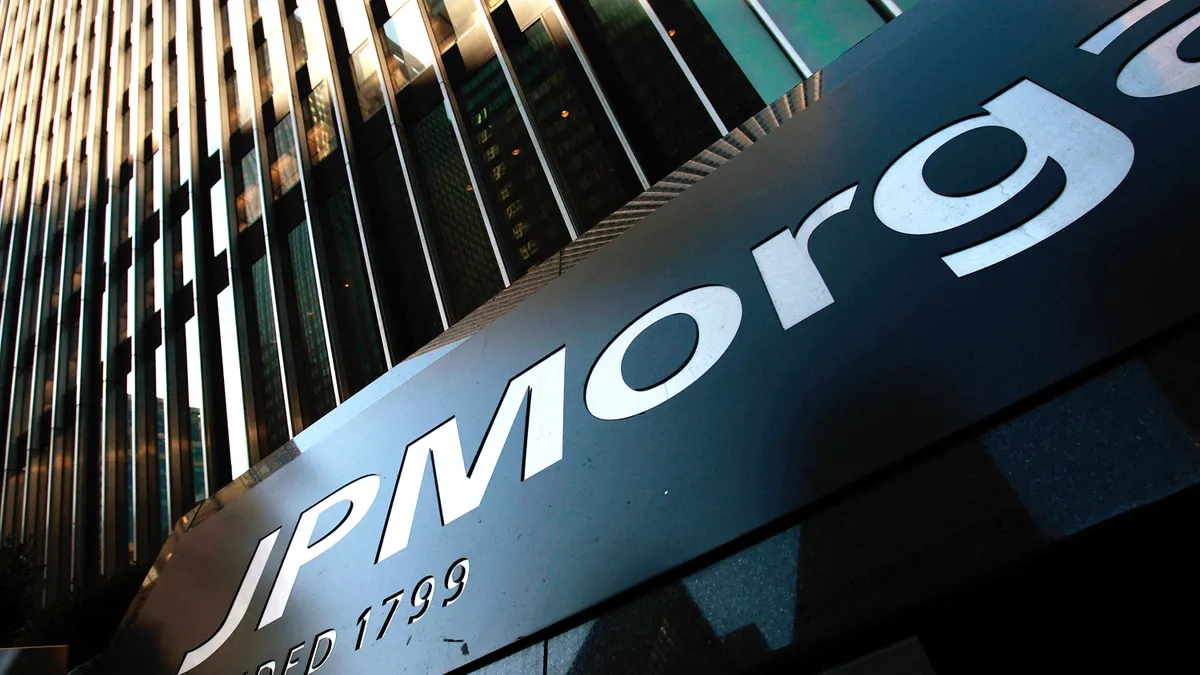JPMorgan’s $4.8 billion bet on the creation of a breakaway European soccer league could fizzle out before the first check is cashed.
The U.S.’s largest bank on Monday confirmed media reports that it would underwrite the creation of the controversial European Super League (ESL), a $6 billion venture involving 12 of Europe’s biggest clubs.
JPMorgan has reportedly agreed to underwrite an initial $4.2 billion investment in the league, a figure that will total $4.8 billion after additional payments and expenses, a source with knowledge of the matter told Bloomberg.
The bank’s financing has been set over a 23-year time frame with an interest rate between 2% and 3%, the wire service reported.
The league's future, however, remains uncertain, after the six English Premier League teams that had joined pulled out Tuesday night, just 48 hours after the arrangement was announced, following widespread backlash from fans, leagues and political figures.
Following the English exodus, Super League officials said Tuesday they planned to "reshape the project," only to see several more clubs — Spanish club Atlético Madrid and two Italian teams, Inter Milan and AC Milan — announce their departures from the league Wednesday.
Alongside fan backlash, the proposed league was condemned by U.K. Prime Minister Boris Johnson, who on Tuesday said the project goes "against the basic principles of competition" and is "propelled by the billions of banks."
"How can it be right when you have a situation where you create a kind of cartel that stops clubs competing against each other?" he told reporters Tuesday, according to The Guardian.
Unlike existing European soccer leagues, where poorly performing teams are relegated to lower divisions at the end of the season, the ESL’s structure resembles an American model, where competition is guaranteed for all of its members.
The fallout even resulted in the resignation of Manchester United Executive Vice Chairman Ed Woodward, a former JPMorgan executive, The Manchester Evening News reported.
Blowback toward the ESL has been severe, particularly in the U.K., where JPMorgan plans to launch a digital retail bank.
In an opinion piece, Guardian financial editor Nils Pratley wrote it’s a "good thing" the financial giant has yet to launch the retail division in the country, adding "calls for a boycott would probably be heard already on account of the Wall Street bank’s role as financier, and thus enabler, of the deeply unpopular breakaway Super League."
The New York-based bank's corporate sustainability rating has taken a hit in the wake of its involvement in funding the league.
U.K.-based Standard Ethics, which ranks companies based on their environmental, social and governance performances, downgraded the bank from "adequate" to "non-compliant" Wednesday.
"Standard Ethics judges both the orientations shown by the football clubs involved in the project and those of the U.S. Bank to be contrary to Sustainability best practices, which are defined by the agency according to [United Nations], [Organisation for Economic Co-operation and Development] and European Union guidelines, and take into account the interests of the stakeholders," the agency said in a statement.
JPMorgan declined to comment.














